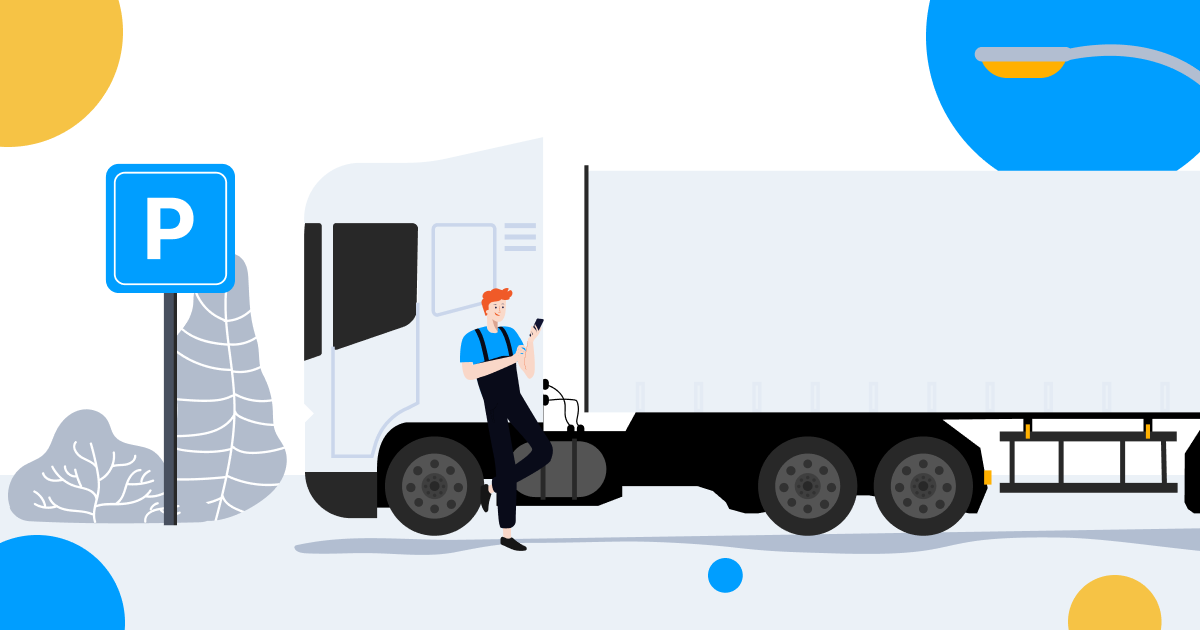
How to make sure you comply with the international regulation during COVID-19 pandemic?
The COVID-19 pandemic is impacting the whole economy around the world and transportation is one of the backbones of keeping the supplies delivered in these turbulent times. Be it medical equipment and supplies, or regular food deliveries, it's important that the goods are delivered on time. Due to this unusual situation, several countries have imposed changes to the work and resting time rules as a response to the situation. In this article, we'll take a look at the changes countries make, their legal implications and offer some suggestions on how the drivers can make sure they're not violating the rules.
First things first. Article 14 of the regulation (EC) No 561/2006 provides the countries with an opportunity to grant exceptions from Articles 6 to 9 to transport operations carried in exceptional circumstances. COVID-19 pandemic is definitely one of such circumstances. It's worth to mention that the regulation also notes that the countries are allowed to provide exceptions only for a period of 30 days and the EC must be immediately informed about such changes. This, in turn, helps the European Commission to gather all the information and publish it to all countries.
If we're looking into Articles 6 to 9 we see that this is basically the backbone of the regulation - these four articles define the length of daily driving time, daily and weekly rest times, weekly and fortnightly driving times, uninterrupted driving time, etc. Countries that have the option to relax these rules have freedom of choice on the rules they ease. Some of them are extending the daily driving time, some - weekly driving time, and some - the time that can be spent driving without rest.
To add more complexity, some countries define the exemptions from the rules valid only for certain deliveries. For example, Belgium defined their exemptions as "Belgium has notified a temporary and limited relaxation of the enforcement of driving and rest times for the drivers involved in the supply chain relating to essential goods and medicine".
Unfortunately, the situation becomes very complicated for the drivers, as they can no longer rely on the data the tachographs show on their displays, as tachographs have no information about the goods they're carrying and changes in the regulations.
Drivers can't also rely on the analysis software providers, because the information about the exemptions from the rules is changing by the day and hour. The analysis software providers can't manage to make changes in their systems at this speed.
So how to cope with this situation?
- Be sure that you completely understand the situation in each of the countries you're travelling through;
- Check whether your cargo qualifies for the exemptions (remember the Belgium case);
- In case you do qualify, keep the records about the cargos you've delivered so that you can prove you were qualified for exemptions;
- Use analysis software, such as Tachogram, that allows you to view data visually, show violations and then double-check whether the violations are valid or false depending on the country regulation changes at that time;
- Pay special attention to entering shift start and end countries correctly. Make sure that you'll be able to prove that your driving time matches the exemption rules for specific countries. For example, if you're driving in a country where it's allowed to drive for 11 hours, after doing so you shouldn't finish your shift in a country where it's not allowed to drive for 11 hours. Also, pay attention to weekly and fortnightly driving times and countries you're driving in at the end of the week;
- The regulation was introduced to improve the safety on the road and any changes to the regulation should be used only if that doesn't affect the safety on the road. If possible, keep in mind that the exemptions from the regulation don’t mean that you have to use them. It's always a good idea to stick to the standard rule set and make sure you're not violating any rules.
Currently, nobody can predict when will the situation change and how will the regulations change until then. Make sure you always double-check the available information about the situation in the countries you're travelling through and keep yourself and other road users safe.
Meanwhile, in case you have any questions about Tachogram, feel free to let us know by writing to [email protected]!